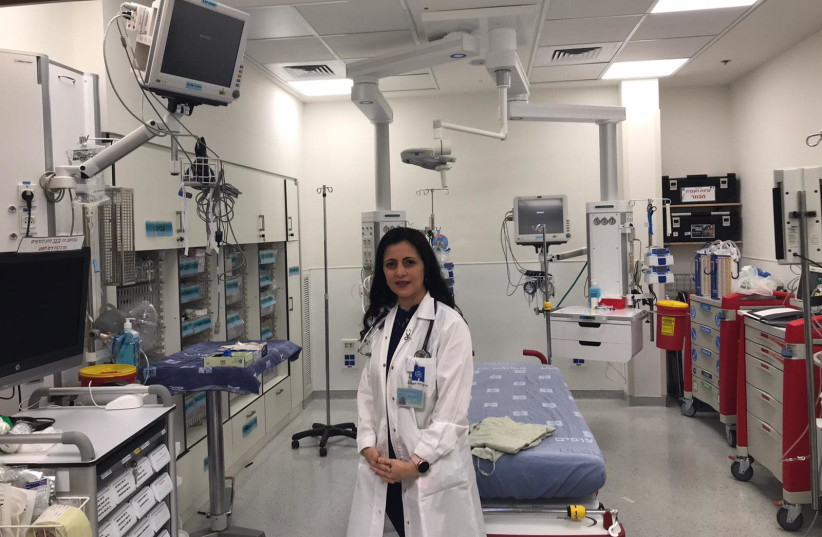Knesset enables immigrants to work without degrees

The decision applies to occupational therapists, speech therapists, nutritionists and physiotherapists.
The Knesset Health Committee voted on Tuesday to extend to 2024 a governmental decision permitting immigrants in key professions to work in Israel with a certificate obtained abroad, even if they do not have a bachelor's degree that Israel normally requires.
The decision applies to occupational therapists, speech therapists, nutritionists and physiotherapists - professions that have been difficult for immigrants to integrate into in Israel due to that requirement. 
But the immigrants will still have to go through the entire certification process here.
In order to become licensed in Israel in one of the four mentioned professions, one has to have their studies (including an internship) approved by the Ministry of Health.
Once the documents are approved, there is a licensing exam, that one has to pass, which is available in English.
"We have been working on integrating new immigrants in the health professions," said the head of the committee, MK Idit Silman (Yamina). "It is known that there is a shortage of workers in the health care industry. There is an opportunity to integrate quality professionals in a Zionist act."
Her Yamina colleague, MK Yomtob Kalfon, who was born in Sarcelles, France, told the committee that in countries like France, medical professions are studied in professional schools and not universities and graduates receive certificates, not degrees. He said it has happened too many times that French immigrants have not had such certificates recognized by Israeli authorities.
"The State of Israel invites immigrants but often does not let them work in their professions," Kalfon lamented.
When Saadi said it was unfair that an Arab who worked in the same hospital in France with a Jew does not get the same benefit the Jew gets upon moving to Israel, Kalfon responded that a Jewish Israeli working in that hospital also does not get that benefit and that Israel is right to advance olim.
MK Alon Tal, a member of the Health Committee, called for the removal of onerous bureaucratic barriers for all Israelis – whether they be immigrants or Arabs – to the expeditious validation of professional credentials from certified, proficient training programs so that they can be integrated among Israel's beleaguered health care workers:
"Israel's rapidly rising population has created an acute shortage of doctors and nurses," Tal said. "Our hospitals and health providers are increasingly overwhelmed and Israelis face intolerable delays in receiving critical treatments. Israel needs to increase the number of places in its medical schools and nursing programs. But until this happens, we will need to rely on Israelis who are trained overseas."
Tal (Blue and White) downplayed opposition to the decision.
"Ultimately, this is not a question about the legitimacy of immigration or discrimination against Arabs," he said. "Aliyah and protection of minority rights – are integral to a Jewish and democratic state. Rather, it's a question of providing all Israelis with their human right of access to high-quality health care. There is no reason why we shouldn't have the benefit of talented, competent physicians, chiropractors, nurses and other health workers."
Former MK Dov Lipman, who runs an organization called Yad L’Olim, said he was thrilled about the decision.
"At Yad L’Olim we hear regularly about the struggles that immigrants have to find work in their professions," he said. "We believe that significant policy changes must be made to help and I applaud MK Kalfon for taking the lead on this important step.”
Former MK Michal Cotler-Wunsh, who championed the issue in the previous Knesset, said she was delighted that the Health Committee extended the approval.
"This decision underscores the imperative to recognize, prioritize and advance professional accreditation, creating holistic, long-term, transparent requirements and policies, identifying and removing systemic hurdles in order to bridge existing and anticipated gaps," she said. "The welcome decision to approve temporary licensing and the exercise of flexibility in recognizing these immigrants' qualifications showcases the possibility and reward of eliminating bureaucracy, easing Aliyah challenges significantly. It is this kind of win-win progress, which fills real societal needs while positively impacting successful integration of olim, enabling and empowering them, that benefits all and propels the State of Israel forward."
Jerusalem Post Store
`; document.getElementById("linkPremium").innerHTML = cont; var divWithLink = document.getElementById("premium-link"); if (divWithLink !== null && divWithLink !== 'undefined') { divWithLink.style.border = "solid 1px #cb0f3e"; divWithLink.style.textAlign = "center"; divWithLink.style.marginBottom = "15px"; divWithLink.style.marginTop = "15px"; divWithLink.style.width = "100%"; divWithLink.style.backgroundColor = "#122952"; divWithLink.style.color = "#ffffff"; divWithLink.style.lineHeight = "1.5"; } } (function (v, i) { });

